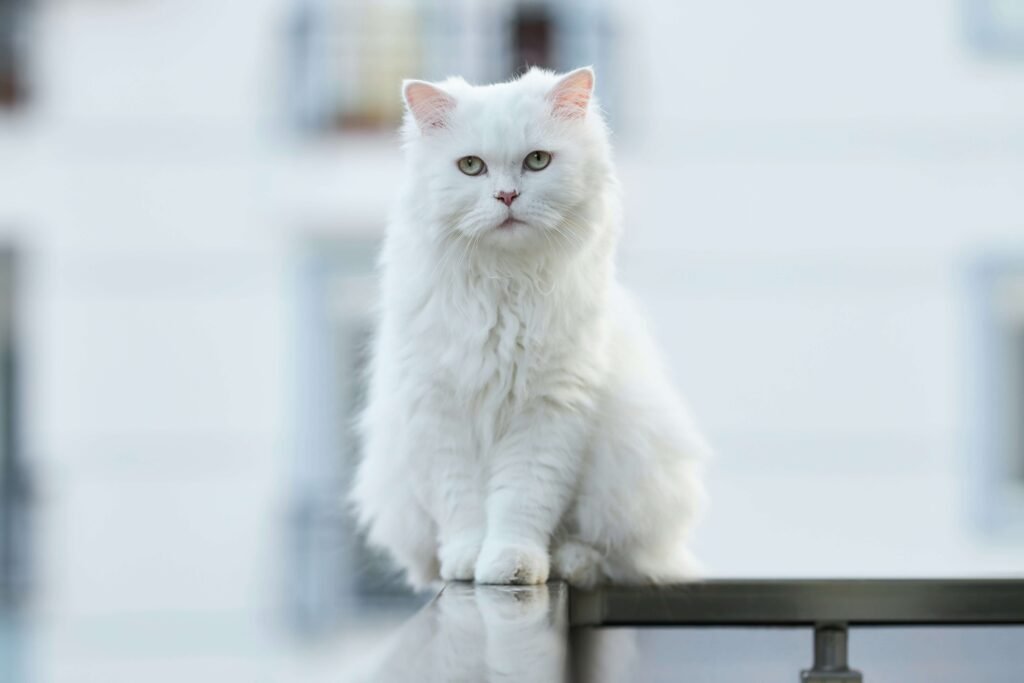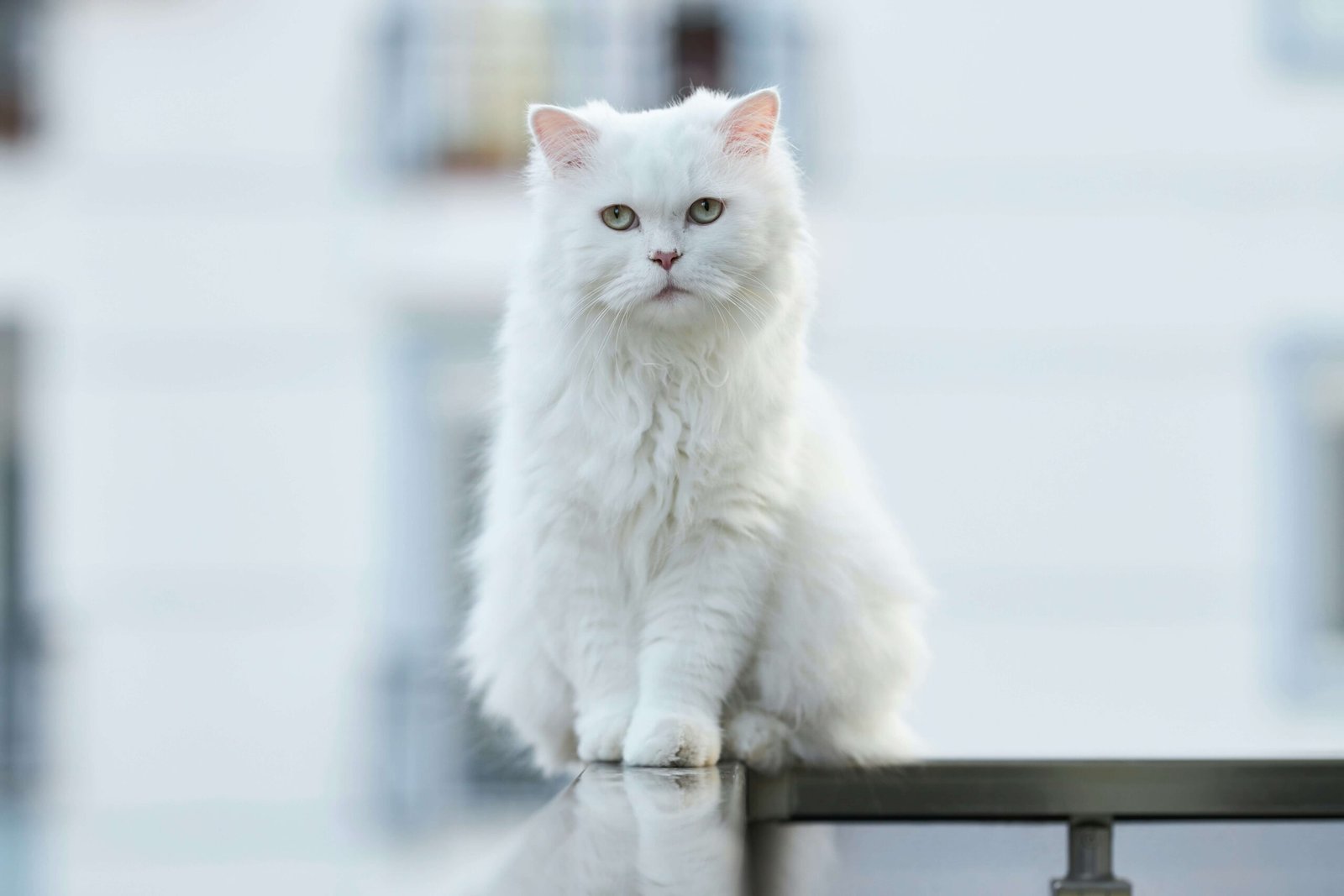Why Does My Cat Lick Me and Not My Husband?
Cats are fascinating creatures, full of quirks and behaviors that often leave us scratching our heads. One common question cat owners ask is why their feline friend seems to show affection by licking them but not their partner. This behavior can feel puzzling, especially when both partners share the same space and provide love and care to the cat. Is it a matter of preference, scent, or something deeper? In this blog post, we’ll explore the reasons behind this curious behavior and shed light on what your cat might be trying to tell you. Whether you’re the chosen one or feeling left out, understanding your cat’s actions can strengthen your bond and bring clarity to this adorable mystery.
The Science Behind Cat Licking Behavior
Cat licking is more than just a grooming habit—it’s a form of communication and bonding. Understanding why cats lick can help explain why your cat might favor you over your husband. Here are some key insights into this behavior:
Grooming as Social Bonding
Cats often groom each other (a behavior called allogrooming) to strengthen social bonds. When your cat licks you, it could mean they see you as part of their “family.”Marking Territory
Licking leaves behind scent markers, which helps cats claim ownership. Your cat may lick you to mark you as theirs.Comfort and Familiarity
Cats are drawn to scents and textures they find comforting. If your scent reminds them of safety, they’re more likely to lick you.Expression of Trust
Licking is a vulnerable act for cats, so when they do it, it signifies trust. Your cat may feel closer to you emotionally.Curiosity About Your Skin
Cats explore the world through touch and taste. They might lick you simply because they’re curious about the saltiness or texture of your skin.
These reasons highlight how complex and meaningful licking can be in the feline world. While it might seem random, there’s usually a deeper explanation behind why your cat chooses you as their grooming buddy.
Why Your Cat Might Prefer You Over Your Husband
If your cat consistently licks you but ignores your husband, it’s natural to wonder what makes you special. Several factors could contribute to this preference. Let’s break them down:
Scent Association
Cats have an incredible sense of smell and are highly sensitive to scents. If you use products like lotions or perfumes that your cat finds appealing, they may gravitate toward you.Routine Interactions
The person who spends more time feeding, playing with, or cuddling the cat often becomes their preferred human. Consistent positive interactions build a stronger connection.Personality Match
Cats, like humans, have distinct personalities. If your energy level, tone of voice, or demeanor aligns better with your cat’s preferences, they may feel more comfortable around you.Physical Touch Preferences
Some cats enjoy gentle petting or specific types of touch. If your husband tends to handle the cat differently, it might affect their willingness to engage.Past Experiences
Cats remember experiences vividly. If your husband accidentally startled the cat at some point, it could influence their current behavior toward him.
Understanding these dynamics can help foster harmony between your cat and your husband. Patience and gradual adjustments can go a long way in bridging any gaps.
Check this guide 👉Why Does My Cat Watch Me Shower? Best 7 Expert Tips!
Check this guide 👉Why is My Cat Scratching the Wall? Best 7 Health Tips!
Check this guide 👉Why Is My Cat Peeing on the Couch? Best 7 Behavior Tips!

Factors Influencing Cat Preferences | Ways to Strengthen Bond with Your Cat |
|---|---|
Scent association | Use calming scents like lavender or vanilla near shared spaces. |
Routine interactions | Spend quality time daily through play or grooming sessions. |
Personality match | Adapt your approach based on your cat’s temperament. |
Physical touch preferences | Learn what type of touch your cat enjoys most. |
Past experiences | Be mindful of any negative interactions and work to rebuild trust. |
How to Encourage Your Cat to Bond with Your Husband
If your husband feels left out, there are ways to encourage your cat to include him in their affections. Building trust takes time, but small steps can make a big difference:
Start Slowly
Encourage your husband to sit quietly near the cat without making sudden movements. This helps the cat feel safe and reduces anxiety.Offer Treats
Associating your husband with tasty treats can create a positive impression. Offer high-value snacks during calm moments.Engage in Playtime
Interactive toys like feather wands or laser pointers can spark curiosity and fun. Shared play strengthens bonds naturally.Respect Boundaries
Forcing interaction can backfire. Allow the cat to approach your husband on their terms, even if progress is slow.Use Positive Reinforcement
Praise and reward your husband whenever the cat shows interest or affection. Celebrating small wins builds momentum.
With patience and consistency, your husband can become someone your cat looks forward to spending time with. Remember, every cat is unique, so results may vary.
Common Misconceptions About Cat Licking Behavior
There are many myths surrounding why cats lick humans. Clearing up these misconceptions can help you better understand your furry friend:
Myth: Cats Only Lick People They Like
While licking often indicates affection, it can also stem from curiosity or habit. It’s not always about preference.Myth: Licking Means Your Cat Thinks You’re Dirty
Unlike dogs, cats don’t lick to clean humans. Instead, it’s usually a sign of bonding or comfort.Myth: All Cats Lick Their Owners Equally
Every cat has individual preferences. Some may lick everyone, while others reserve it for select individuals.Myth: Licking Stops Once Trust Is Established
Even after forming a strong bond, cats may continue licking as a way to maintain closeness.Myth: Ignoring Licking Will Stop the Behavior
Disregarding your cat’s attempts to connect might harm your relationship. Acknowledge their efforts instead.
By debunking these myths, you can appreciate your cat’s licking behavior for what it truly represents—a meaningful form of connection.
Signs Your Cat Feels Comfortable Around You
Cats have subtle ways of showing they feel safe and secure with someone. These signs often go unnoticed, but they’re clear indicators of trust and affection. Here are some behaviors to look out for:
Purring While Near You
A cat’s purr is a soothing sound that signals contentment. If your cat purrs while sitting close to you, it means they feel relaxed in your presence.Kneading on Your Lap
Kneading is a behavior cats learn as kittens when nursing. When they do this on you, it shows they associate you with comfort and security.Sleeping Close to You
Cats value their sleep and only choose safe spaces to rest. If your cat sleeps near or on you, it’s a sign they trust you completely.Slow Blinking at You
Known as the “cat kiss,” slow blinking is a gesture of love and trust. If your cat does this, they’re expressing deep affection.Following You Around
Cats are naturally independent, so if yours follows you from room to room, it indicates they enjoy your company.
These behaviors highlight the bond you share with your cat. Paying attention to these subtle cues can help you appreciate the depth of your relationship even more.
Ways to Make Your Husband More Appealing to Your Cat
If your husband feels left out, there are proactive steps he can take to win over your cat’s affection. Building a connection takes effort, but it’s entirely possible with the right approach. Here are some strategies:
Speak in a Soft, Calm Voice
Cats are sensitive to tone and volume. Encourage your husband to use gentle, soothing tones when speaking to the cat.Avoid Sudden Movements
Quick gestures or loud noises can startle cats. Your husband should move slowly and predictably to avoid scaring them.Offer Favorite Toys or Treats
Associating your husband with positive experiences, like playtime or snacks, can make him more appealing.Respect the Cat’s Space
Cats need time to warm up. Your husband should give the cat space to approach him on their own terms.Engage in Grooming Activities
Brushing or gently stroking the cat can mimic grooming behaviors, helping your husband establish a nurturing role.
By implementing these strategies, your husband can gradually become someone your cat looks forward to interacting with. Patience and consistency are key to success.
Fun Facts About Cat Licking Behavior
Cat licking is not just about bonding—it’s also tied to fascinating instincts and habits. Learning more about this behavior can deepen your appreciation for your feline friend. Here are some intriguing facts:
Licking Helps Regulate Body Temperature
Cats don’t sweat like humans; instead, licking spreads saliva across their fur, which cools them down as it evaporates.Cats Lick Themselves After Eating
This instinct dates back to their wild ancestors, who licked themselves clean to remove traces of food that could attract predators.Mother Cats Lick Their Kittens for Bonding
Newborn kittens rely on their mother’s licking to stimulate breathing and digestion, making it an essential part of early bonding.Excessive Licking Can Indicate Stress
If your cat licks themselves or you excessively, it might be a sign of anxiety or discomfort. Monitoring their behavior is important.Cats Lick Each Other to Strengthen Social Bonds
In multi-cat households, allogrooming (mutual licking) helps maintain harmony and reinforces social hierarchies.
Understanding these fun facts sheds light on why licking is such a significant behavior for cats. It’s a reflection of their instincts, emotions, and social nature—all wrapped into one adorable act.
Frequently Asked Questions About Cat Licking
Why does my cat only lick me and not others?
Your cat likely feels a stronger bond with you due to scent, routine, or personality compatibility.
Is it normal for cats to lick humans?
Yes, licking is a natural behavior used for bonding and expressing trust.
Should I stop my cat from licking me?
Unless excessive licking causes irritation, there’s no need to discourage it. It’s a sign of affection.
What should I do if my cat suddenly stops licking me?
Changes in behavior can indicate stress or health issues. Consult a vet if you notice significant shifts.
Can I train my cat to lick someone else?
While you can’t force licking, creating positive associations can encourage your cat to interact with others.
Strengthening Your Bond Through Understanding
At the end of the day, your cat’s licking behavior reflects their unique personality and preferences. Whether you’re the lucky recipient or watching from the sidelines, understanding the reasons behind their actions fosters a deeper connection. By recognizing the role of scent, routine, and trust, you can nurture relationships within your household—both human and feline. Remember, patience and empathy are key when navigating the complexities of cat behavior. So embrace those wet kisses, knowing they’re a testament to the love and trust your cat has for you.
Dog Tapeworm Life Cycle: Best 7 Expert Tips! – Learn how tapeworms infect dogs, spot symptoms, and break the cycle with expert prevention strategies.
Anxious Cat Body Language: Best 7 Expert Tips! – Learn to spot signs of stress, understand triggers, and help your cat feel safe and relaxed.
Anxious Dog Body Language: Best 7 Expert Tips! – Learn to spot signs of anxiety, respond effectively, and help your dog feel safe and secure.
Is Breeding Dogs Bad? Best 7 Expert Tips! – Explore the ethics, benefits, and risks of dog breeding to make informed decisions for a better future.





